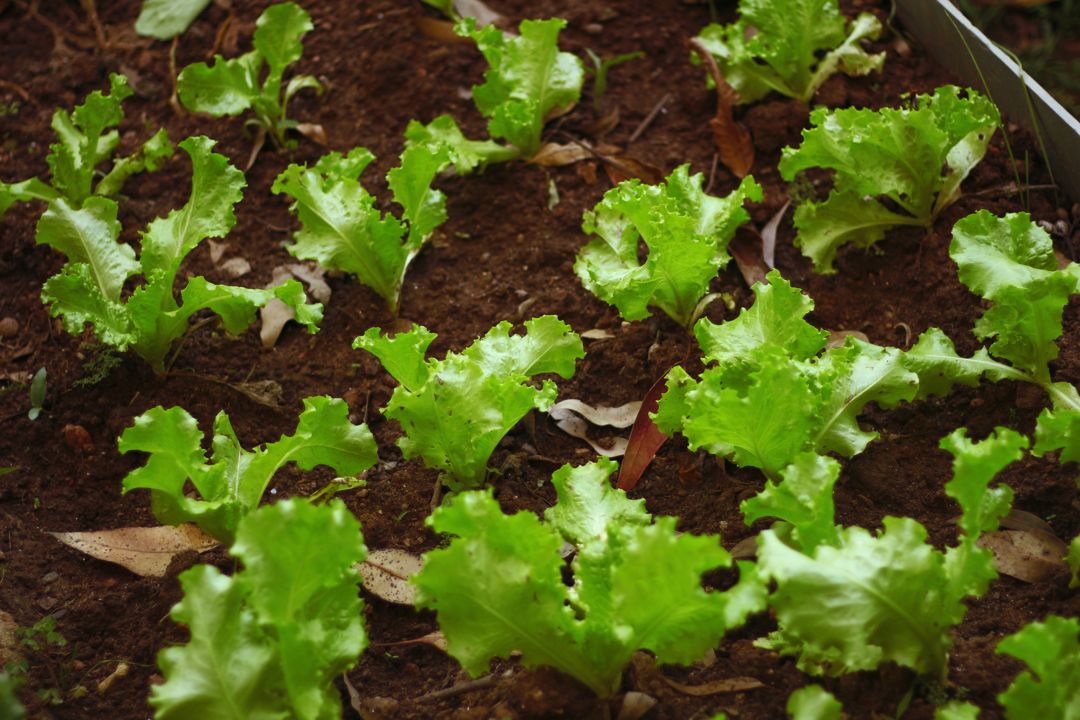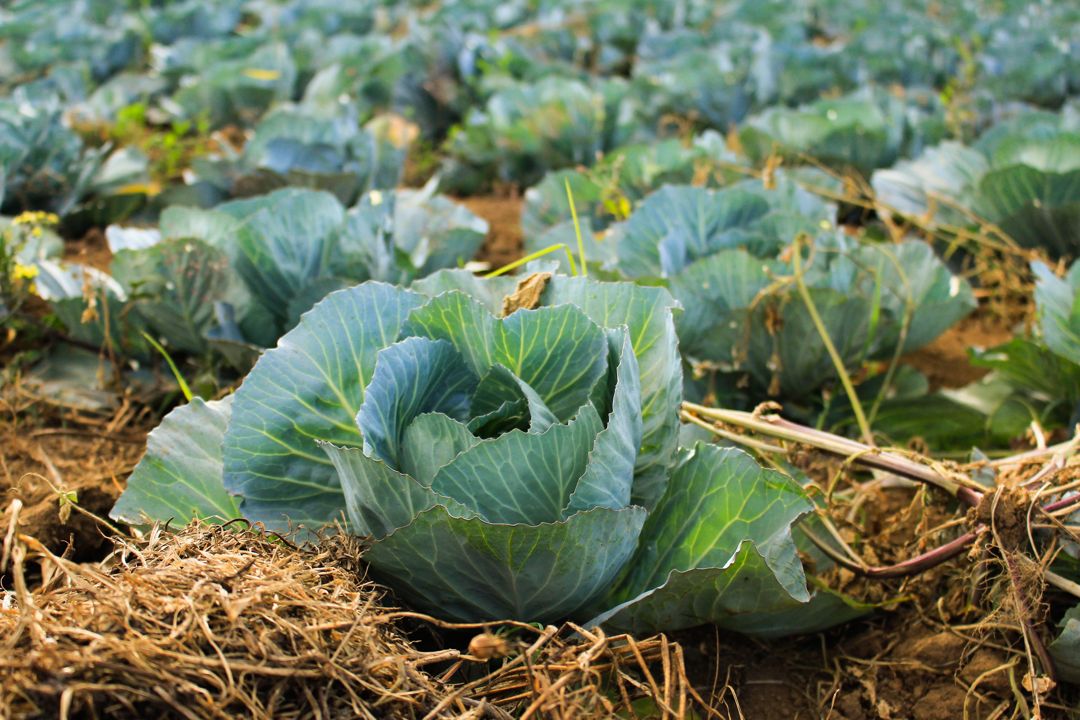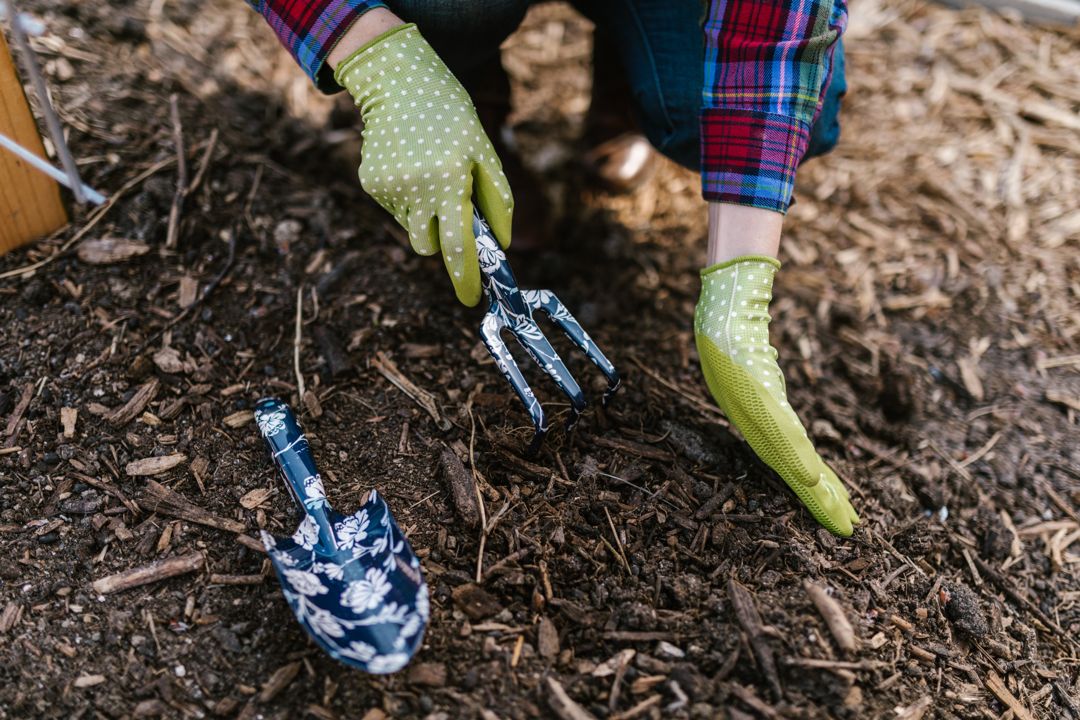Soil is one of the most precious resources in the garden. Building healthy soil is key to healthy plants, and an important step in building healthy soil is to use mulch. Mulch is a layer of material placed on top of the soil to protect it. While mulching your vegetable garden is a must-do, the materials can vary based on your local growing conditions and what’s readily available.
Why Mulch Your Garden?
Leaving the soil surface in your garden bare can cause several problems. Applying mulch helps protect the soil in many ways:
- It prevents the soil from eroding away from wind and water
- It ensures water will trickle into the soil rather than hitting the soil surface and washing away
- It holds in moisture and ensures the soil surface doesn’t dry up and crust over
- It helps to buffer extreme temperatures, and
- It helps to prevent (or at least, slows) weed growth
Mulches can be used to accomplish specific tasks too. For example, a black tarp can be used to cover an entire area to kill off weeds before planting. Or, a thick layer of leaf mulch can be applied prior to winter to help perennials better withstand the cold.
Mulch Options
There are many options for vegetable garden mulch materials. These can be categorized as inorganic mulches such as landscape fabric, and organic mulches such as leaves and compost.
Organic mulches gradually break down and feed the soil life below, helping to build soil health over time. Organic mulches need to be re-applied, once a year or more depending on the material, but they are well worth it for their soil-building benefits.
Mulch materials commonly used in vegetable gardening include:
Tarps and landscape fabric: some gardeners prefer to avoid using tarps and landscape fabric, to minimize their use of plastic and due to concerns about chemical leaching. They can be effective when used properly for weed suppression, and to help warm up the soil in spring. Depending on the material and how long you use it, you might need to consider how to irrigate underneath. Landscape fabric and tarps may need to be replaced every several years.
Leaves: leaves are a great resource readily available to gardeners in areas with lots of deciduous trees. Ask around in the fall, and you will likely be able to secure a season’s worth of free mulch from your neighbors! Shred dry leaves using a lawn mower so they do not blow away and apply them in a thick layer. Some gardeners compost the leaves down into ‘leaf mold’ and use that as mulch, for added soil life benefits and to keep them from blowing around.

Wood chips: wood chips make a good garden mulch that helps feed soil life, especially fungi, as they break down. Wood chip mulches used in a edible garden must be entirely natural; do not use dyed wood chip mulches or wood that has been chemically treated. Some gardeners worry that wood chips will acidify their soil or release natural chemicals that inhibit plant growth, but generally this is a non-issue. Wood chip mulches can ‘rob’ nitrogen from the soil as they break down, but this effect is usually minimal and concentrated near the soil surface. Wood chip mulch will need to be temporarily moved out of the planting area when transplanting or seeding veggies, and you can add nitrogen-rich fertilizer to help counteract any nitrogen tie-up. Once the plants are well established the mulch can be moved back.
Grass clippings: grass clippings are a great mulch material, provided they are collected from a lawn that does not use herbicides or pesticides. Allow the grass to dry out a bit before applying; if it is too wet it may start to smell as it decomposes. Apply a thick layer to avoid it blowing away in the wind.
Straw: many gardeners prefer to use straw as a mulch material. It is best to use straw instead of hay. Hay tends to have seed heads which can germinate and grow grasses in your garden, but straw should be mostly free of seed heads. As with grass clippings, when you source your straw be sure no herbicides or pesticides have been used, and apply it in a thick layer.

Compost: not only is compost an excellent soil amendment, it can also be used as a mulch. Compost can be a good mulch option if you are struggling with pests, where other types of organic mulches may create a more pest-friendly habitat. Compost breaks down relatively quickly, and will need topping-up a few times during the growing season.
However you choose to mulch, keeping the soil surface well-protected is one of the best things you can do to help your garden thrive!
